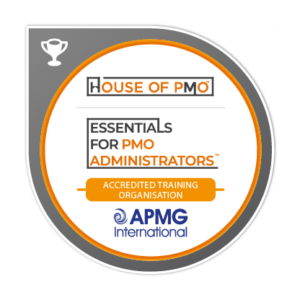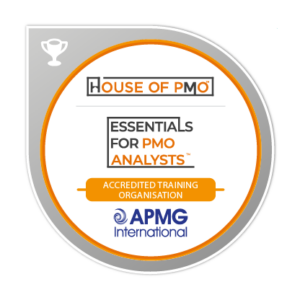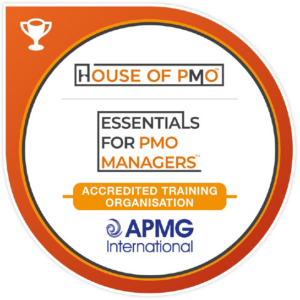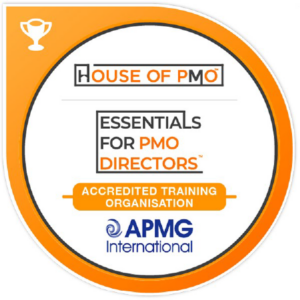
A PMO Analyst is someone who works within a PMO (Project, Programme or Portfolio Management Office) and is considered to be more experienced than a PMO Administrator. The roles have similarities – they are both supporting project management within an organisation and the PMO Analyst will have similar skill sets to the PMO Administrator however the primary focus of the role is evident in the title – analysis!
We tend to see this role in organisations where there are larger projects or programmes – where these might be deemed to be complicated in some way. We also see this role in organisations where a permanent PMO might be in place, a function which is tasked with improving project management maturity across the business.
One look at job advertisements and specifications for a PMO Analyst today quickly reveals a set of core competencies or skills to get the job done.
Regardless of the type of organisation, sector or project, you work within; the skills remain the same across the board.
Here are five of the top skills for a PMO Analyst, as outlined in the PMO Competency Framework, one of the key texts for the House of PMO Essentials certification range.
1. Data Assimilation/Analysis
A PMO Analyst’s role is very data-led. In a large project or programme, data is produced every day. It will include data from resource management, budgets, risk, schedules, change control – just about any activity that takes place will include data outputs that need capturing, controlling, improving, reporting and analysing.
The PMO Analyst is the main role for managing the mechanics of this, for ensuring the data capture, logging, analysis and interpretation. I would also argue that a great PMO Analyst takes responsibility for the accuracy of the data but many would disagree because they don’t OWN the data. Yet there has long been a saying in the PMO Analyst world that they should be striving for “the only version of the truth” because if they don’t who will?
 In terms of skill sets, it is obvious that a PMO Analyst needs the ability to manage data first of all. They tend to be brilliant with the basic tool, MS Excel. Regardless of other tools an organisation might use, Excel is the PMO Analyst’s best friend. They will often use it with data extracted from other places, using formulas, pivot tables and graphs to manipulate the data. More recently, PMO Analysts have been experimenting with more advanced tools such as Microsoft’s Power BI and starting to understand how data science-led tools like Azure and Python will be useful to the PMO.
In terms of skill sets, it is obvious that a PMO Analyst needs the ability to manage data first of all. They tend to be brilliant with the basic tool, MS Excel. Regardless of other tools an organisation might use, Excel is the PMO Analyst’s best friend. They will often use it with data extracted from other places, using formulas, pivot tables and graphs to manipulate the data. More recently, PMO Analysts have been experimenting with more advanced tools such as Microsoft’s Power BI and starting to understand how data science-led tools like Azure and Python will be useful to the PMO.
They will often be naturally gifted with dealing with numbers – let’s face it, you either really love working with numbers or you don’t and PMO Analysts tend to be fascinated with them! It is worth highlighting that many PMO Analysts don’t pursue formal learning and development in data analysis courses which has always struck me as odd. Maybe it’s time to pursue this avenue if they want to increase their professional skills?
So not only do they manage the raw data, but they also focus on making sense of that data in relation to the project or business environment they are in.
2. Communicate and Present
This is where the PMO side of their title starts to come into play. Not only are they good analysts, they are also experienced in project and programme management. They can only make sense of the data they are analysing if they are experienced in how and where that data is being produced.
A good PMO Analyst is very aware of their audience – and that audience in a project organisation will vary dramatically. A senior stakeholder isn’t interested in complicated-looking spreadsheets – they just want to know the headlines. A project manager within a programme wants the detail on the project and headlines from the programme that has a direct effect on their project, not the full chapter and verse. Meanwhile, the finance department wants just the finance picture and so on. Different cuts of data in different formats with the right accompanying narrative is a PMO Analyst’s mantra.
A PMO Analyst is not a role that simply looks back at the past – recording what has happened to date. They are also interested in how data can help affect future delivery too. This is all about the science of using historical data to help predict the future with some degree of accuracy. The great thing about PMO Analysts is that they have seen many projects over the course of their careers – probably more so than a project manager – and it is this experience that brings insight. Tasks such as scenario planning – taking the existing data and using it to suggest different courses of action, using both real data and drawing on past experiences. If you’re lucky enough to see a PMO Analyst doing this well you’ll be kicking yourself for ever doubting the need for PMOs.
3. Forecast
The PMO Analyst is not all about data. The title is used to also highlight that they are considered to be senior to a project support officer, having more experience in complicated projects and programmes. These experiences enable them to really join the dots in programme and project delivery. Take for example the programme level, which role is responsible for ensuring interdependencies are visible? A programme manager? Would a programme manager really have the time to uncover all the potential interdependencies? In the coming weeks, months, years? With the often rapid pace of change is it feasible to expect a programme manager to manage this alone? The PMO Analyst is THE interdependency watcher, monitoring activity across the projects to provide a rolled-up programme view. They then enable the programme manager to do what they do best, managing the exceptions.
So a PMO Analyst is not just recording and highlighting, they also use their own knowledge and experience of delivery to forewarn on potential risks and conflicts.
4. Facilitate
You can be forgiven for thinking a PMO Analyst is someone who loves sitting at a desk, playing with numbers and scenarios rather than interacting with people. Good PMO Analysts can only really ensure good quality data if they do interact with people. It’s a big part of their job knowing when data simply doesn’t look right and taking a few moments to have a “chat” with the owner of the report to sniff out the discrepancies and of course the reason for it!
They also make great facilitators in workshop sessions like planning development or risk workshops. In many ways, they are the agnostic view of the project and can remain independent during these sessions. Due to their experience and knowledge, they are also good at interpretation and note capturing – listening to the conversations and knowing what needs to be captured rather than noting down everything!
5. Think Creatively
The PMO Analyst is also a role within an organisation that is constantly thinking about what is being done and how it is being done, after all, they are analysts. If there is a way to improve on processes, the PMO Analyst will be the person that takes that and runs with it to produce an improved way of working. Of course, they are not just thinking about process improvement, they are also working through the different options, analysing them for pros and cons, instigating pilots with users and testing.
They make good trainers or mentors in different aspects of the project process because ultimately there is an ulterior motive for getting it right. The better the processes ultimately means better data. You see, they really are smart cookies. They’re also using their human skills such as communication; coaching; influencing and being that connector in the organisation to really help people deliver their programmes and projects better.
Enjoying Our Blog?
Sign up and receive all our articles (we’ll send you an update once a week!) plus special offers and events:
This post contains affiliate ad links.











